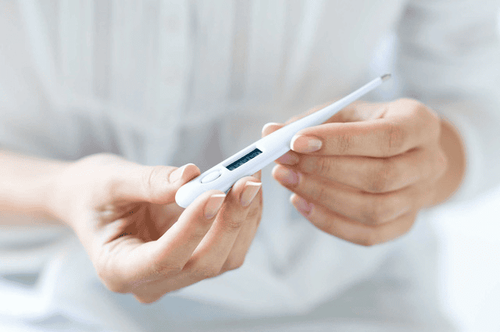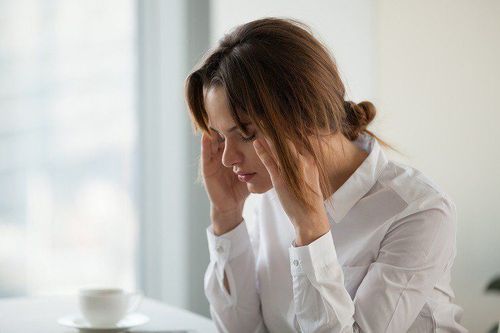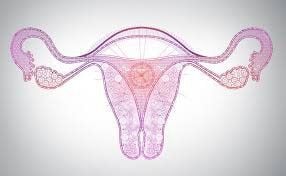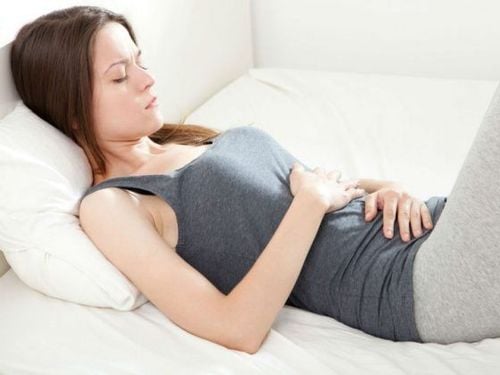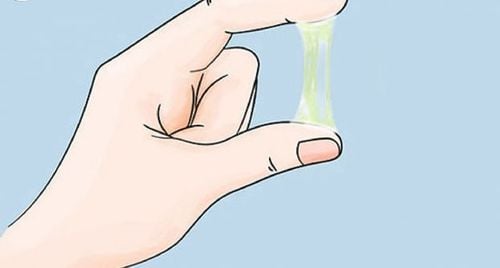Menstrual irregularity after stopping birth control are quite common, especially when stopping hormonal contraceptives. In most cases, it may take up to 3 months for a woman's menstrual cycle and fertility to return to normal. Additionally, the causes of menstrual disorders should be promptly addressed to quickly regain fertility.
1. Is it normal to experience menstrual disorders after stopping birth control?
According to obstetricians and gynecologists, it is normal to have delayed periods, irregular periods, or menstrual disturbances after stopping birth control, especially hormonal contraceptives. It may take a few weeks or sometimes a few months for periods to return to their previous regularity.
Two of the most common reasons for menstrual irregularities after stopping birth control, besides pregnancy, are:
- Delayed return of ovulation:
Hormonal contraceptives, such as pills, implants, intrauterine devices, and injections, prevent ovulation by different mechanisms. One of their mechanisms is to minimize the chance of ovulation.
When a woman stops using hormonal contraception, ovulation usually occurs once in each menstrual cycle. If the egg is not fertilized by sperm, changes in hormone levels will trigger the shedding of the uterine lining and menstruation.
Because women who have been using hormonal contraceptives often do not ovulate, the body requires some time for normal ovulation to resume. Until this happens, a woman may temporarily not have a period.
- Hormonal deficiency:
Some hormonal contraceptives, such as combined oral contraceptives, can help regulate a woman's menstrual cycle. This means that even if ovulation does not occur, women using the pill may still have bleeding at regular times of the month.
Doctors call this withdrawal bleeding, as it only occurs when the birth control pill is stopped. With no more medication in the blood, the body's endogenous hormones must begin to regulate the menstrual cycle on their own, and it may take some time for the reproductive system to adjust to this naturally.
Additionally, even those who had irregular periods before starting hormonal contraception may still have irregular cycles after stopping the pill.
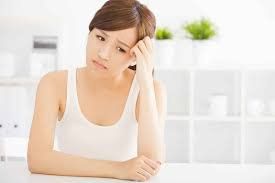
2. Potential experiences when stopping birth control
2.1. Temporary side effects
Some women may experience side effects after stopping birth control. Fortunately, these symptoms usually improve over time:
- Vaginal bleeding between periods.
- Breast tenderness.
- Changes in skin or hair.
- Headaches.
2.2. Potential benefits
Some women may find that stopping birth control can have benefits, especially if the birth control they were using causes unwanted effects.
- Increased libido.
- Decreased headaches.
- Improved mood.
- Decreased nausea.
2.3. Return of previous Symptoms
If you were using birth control to manage menstrual-related symptoms, those symptoms may return after stopping the pill, including:
- Menstrual cramps.
- Irregular periods, which causes menstrual disorders.
- Heavy menstrual bleeding.
- Menorrhagia.
- Mood swings.
- Acne or oily skin.
- Menstrual migraine
Similarly, women who were using birth control to manage certain health conditions may find that their symptoms return, such as:
- Premenstrual syndrome.
- Premenstrual dysphoric disorder.
- Polycystic ovary syndrome.
Therefore, in some cases, using hormonal contraception can inadvertently delay the diagnosis of these conditions, especially if it was started during adolescence. However, if a woman continues to experience persistent or severe symptoms after stopping birth control, it may indicate an underlying physical condition rather than a functional one.
3. When will menstrual cycles return to normal after stopping birth control?
The amount of time it takes for menstrual cycles to return to normal after stopping birth control varies from person to person, depending on several factors. Stress, exercise, changes in body weight, and overall health can all affect when and how regularly periods return.
However, in most cases, in the absence of any other health conditions, normal fertility, including ovulation and regular menstrual cycles, will usually return within 3 months.
Additionally, for most women, fertility also returns to normal within 1 year and may be sooner.

4. Other causes of menstrual disorders after stopping birth control
Other causes of menstrual disorders after stopping birth control include:
- Pregnancy
- Polycystic ovary syndrome
- Perimenopause
- Chronic stress
- Low body weight
- Eating disorders, such as anorexia or bulimia
- Thyroid disorders, such as hyperthyroidism
- Pituitary or hypothalamic dysfunction
- Premature ovarian failure
- Certain chronic health conditions, such as inflammatory bowel disease
5. How to improve menstrual disorders
Most women have regular menstrual cycles shortly after stopping birth control. Therefore, they usually do not need any specific interventions to help their bodies readjust. However, some women may need support to balance hormones and restore their previous menstrual cycle, including:
- Managing stress
Prolonged stress can sometimes cause amenorrhea or menstrual disorders. If a person frequently feels stressed or anxious, they should be taught relaxation techniques and may even seek support from a therapist.
- Maintaining a balanced diet
Sudden changes in diet or excessive dieting can disrupt the menstrual cycle. Instead, try to choose a balanced and moderate diet, maintaining stability and ensuring a full range of nutrients. Avoid sugary foods, as over time, this can increase the risk of insulin resistance and the development of type 2 diabetes.
- Maintaining a healthy weight
Both high and low body weight can affect reproductive hormones. A healthy diet and regular exercise can be helpful. However, if a woman finds it difficult to achieve an ideal weight, she may have an underlying medical condition, such as polycystic ovary syndrome. Similarly, if she finds it difficult to control thoughts about eating, exercising, or weight loss, she may need treatment for an eating disorder.
- Monitoring hormone levels
Women who are planning to get pregnant or want to track their menstrual cycle can self-test and monitor at home with ovulation predictor kits, progesterone tracking, or apps that track symptoms throughout the cycle.
In conclusion, missed periods, no periods, or menstrual irregularities after stopping birth control are common and can sometimes be a result of factors such as weight, health, stress, exercise, and conditions like polycystic ovary syndrome. For most women, menstrual cycles will return to normal after a few weeks or months. However, a missed period can also be an early sign of pregnancy. Therefore, before concluding that it is menstrual irregularities after stopping birth control, a woman should take a pregnancy test if her period does not return after 4 weeks.
Please call HOTLINE or make your reservation directly HERE to arrange an appointment. You may also download the MyVinmec app to schedule appointments faster and conveniently manage your reservations.




